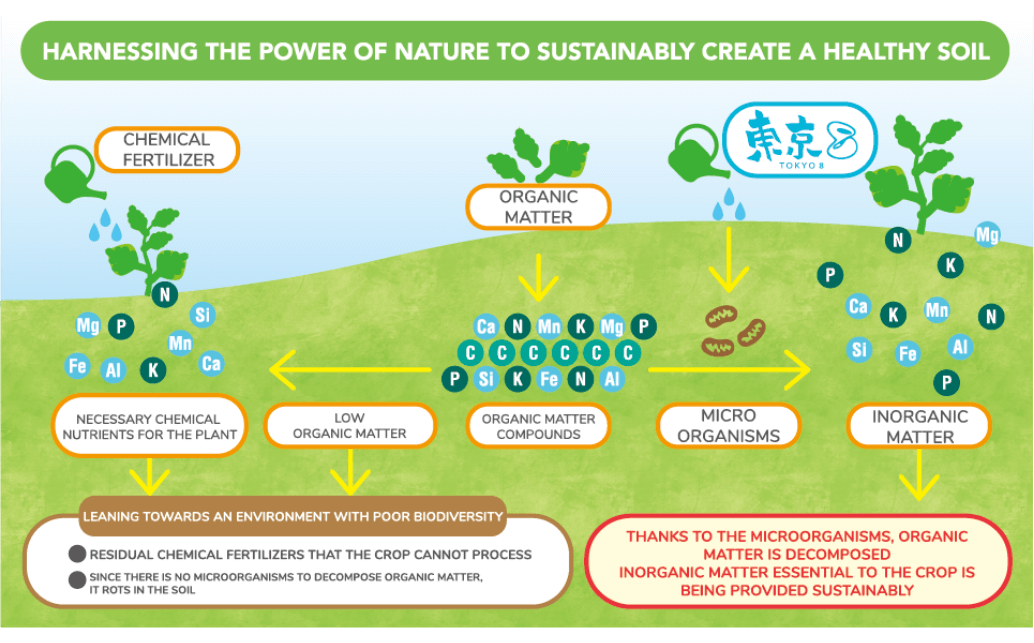
We're professionals at microbiology
We have been studying the impact of Tokyo 8’s microorganisms on agriculture for 10 years. Thanks to conventional cultivation with chemical fertilizers and pesticides, modern society has made strides in food production amidst a growing population. However, conventional cultivation, which efficiently and directly provide nutrients needed by crops, has created various issues along with its success. Conventional cultivation uses pesticides to control pests and weeds. The direct supply of nutrients to plants, soil damage caused by pesticides, and soil tillage caused by physical cultivation all combined to gradually destroy the natural relationship between plants and soil organisms.

Transforming the future of agriculture with Tokyo8
The most damaging of all is the loss in soil microorganism diversity, which are supposed to serve as a bridge between plants and organic matter (nutrients for growth). Conventional cultivation reduces the food supply for microorganisms, and pesticides reduce the soil biodiversity as well as pathogens. Not only conventional farming, but also organic farming has its own problems. For example, diseases and pests from compost can occur, and the slow-acting nature of organic fertilizers which is difficult to control. However, if farmland has healthy soil biodiversity, including microorganisms, native fungi and natural predators of soil organisms can suppress disease, keep pests at bay, and break down slow-acting organic components to help plants absorb nutrients.
